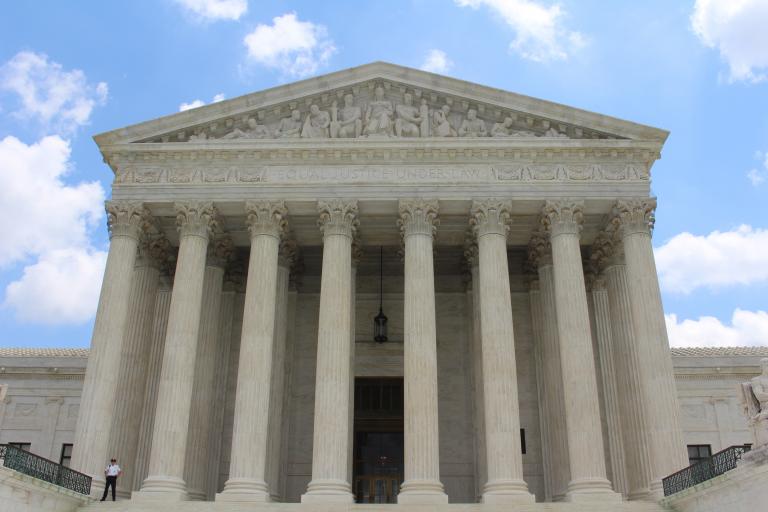
If there’s anything I’ve learned about relationships, it’s that there’s always two sides to a story. The relationship, whatever it may have been, between Kavanaugh and Ford is no exception. She claims he sexually assaulted her. He claims he didn’t.
What is unnerving is that that’s as far as the facts go, thus far. Christine Blasey Ford cannot remember the date, the time, or the place of the alleged sexual assault. But in going public with the accusation, she has managed to halt an entire confirmation hearing for the Supreme Court Justice of the United States nominee. She’s also managed to tarnish an otherwise pristine moral record of that nominee, the man we know as Brett Kavanaugh.
Herein lies the problem. Herein lies the reason I’m becoming increasingly ashamed to be called a woman, and even more ashamed of the #MeToo movement and where it has take us. When a woman has the ability to come out and alter the course of a country for what may be multiple decades based on a vague, (thus far) proof-less accusation of sexual assault, women’s “empowerment” has gone too far. It should not be possible to throw out an accusation as muddy and murky as the Huang He, and as a result, put the kabosh on confirmation hearings while demanding everything at those hearings be as cushy as Goldilocks desired when she broke in and raided a house owned by three bears.
Not only has Ford not given any indication of proof, but she has insisted that the hearing be held her way, on her timing, with only the people she chooses. Why? Is that what a victim supposedly looks like? Is she trying to appear fragile? Hurt? Afraid? She does indeed appear to be all of those things, and if her story is true, for good reason. But she also appears dishonest and controlling. She’s alerted the entire world that a terrible injustice was done to her, and the world, apparently, is supposed to bow the knee, shed the tear, and oh yeah … get rid of Kavanaugh, a highly pro-life, conservative judge with a squeaky clean background as far as anyone knows. All without an ounce of proof. All because she is woman, hear her roar.
You can’t pull the pin on an 11th hour grenade and throw it in the middle of Senate confirmation hearings based on vague accusations. I mean, you can, obviously. But you shouldn’t. Doing so says something about your character, about the way you might normally conduct yourself, and what you think of a decent family man’s life and family – mainly that you have an unrestricted power over it, simply because you’re a woman.
Though I never chose to participate in the #MeToo movement, I could have. I thought it had potential to be a good and healing. My fear though, was that feminists would take it to an unhealthy level. Well, we’re there, at least in Ford’s case. The situation between Ford and Kavanaugh has brought a sickness to the surface and exposed it. Women officially have enough power to throw out a hazy, imprecise, unclear, ambiguous claim about a high profile man, be taken seriously enough to possibly halt the direction of The United States of America, and forever tarnish that man’s reputation – in spite of that reputation being otherwise clean.
And that’s wrong.
If a woman is going to accuse anyone of sexual assault, she needs to know her stuff, have her proof, and she needs to comply with normal legal practice. To be an accuser is gravely serious. To be an accuser is to have a man’s life in your hands, as well as the life of his family. To be an accuser is to be willing to destroy. To be an accuser is, in this case, to be willing to alter the course of history. To be an accuser is not a joke. It’s not a game. It’s as serious as it gets.
On the flip side, to be an attacker is gravely serious. To be an attacker is to have a woman’s life in your hands, as well as the life of her family. To be an attacker is to be willing to destroy. I know, because I was assaulted multiple times, before the age of seventeen. I was not drunk. Those who assaulted me were not drunk. I don’t know about them, but I remember everything. The place, the time of day, the house, what was said, what was not said, what they did to me, and what I did in return. I know what led up to it, and I know what didn’t lead up to it. I know without a doubt who is culpable and who is not. I know why I didn’t tell, and why I did tell. I know why I didn’t go to the police, and why I’ve never gone to the police since, though I had an opportunity to more than twenty years after the assaults took place.
First fact is, I could destroy two men’s lives right now, at the drop of a vague, weak accusation. Or could I? The men who hurt me are not well known. One is now a family man, with three beautiful kids and wife. He apologized to me not long after the incident, and I have no desire to destroy him. Punch him, maybe. But not destroy him. The other is working the system of the state we both live in, living off of my tax dollars, buying drugs to numb his (cough*) pain, and God knows what else. I admittedly, in my flesh, have a desire to destroy him at times. What he did, in some ways, damaged me for life. But as I’ve worked through the past, I’ve ultimately come to the conclusion that vengeance is God’s, He will repay (Rom. 12:19). What I could conjure up as a just and adequate punishment is not near as just and adequate as what God would conjure up, and I choose to leave it in His hands. God is a far better Judge than any earthly judge I might (but probably couldn’t) convince to look at my case, and I trust Him to repay.
Second fact is, I don’t have proof. I didn’t go to the police immediately afterward. I have my word. My attackers have theirs. If they were in the running to be a SCOTUS judge, I’d probably have a case. But in reality, I don’t have a case at all. Statutes of limitations play a part (and for good reason). Lack of evidence plays a part. Lack of notoriety plays a part. Perhaps reality for the common person and reality for the famous person are two different things, but I hope not. I hope the justice system will not fail us. I hope they require solid proof, and not mere hearsay coupled with an iffy testimony.
In closing, Ford has yet to provide proof. If she does, then we look at things in a different light. If she doesn’t, we need to ask ourselves why her word is more valid than Kavanaugh’s (hint: it’s not). Meanwhile, we need to be considering what should or shouldn’t be required to smash a man’s career, family, and reputation to smithereens. Because if Ford has done that without any intention of at some point offering solid proof? She’s needs to be moved from plaintiff to defendant.
One word against another isn’t good enough. Not thirty years later. Not in this situation. Not ever.












